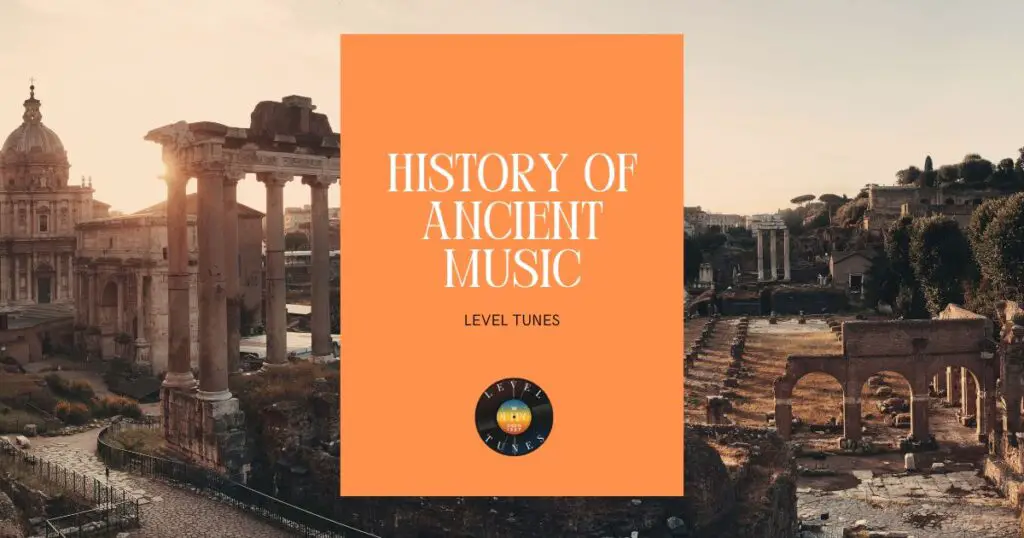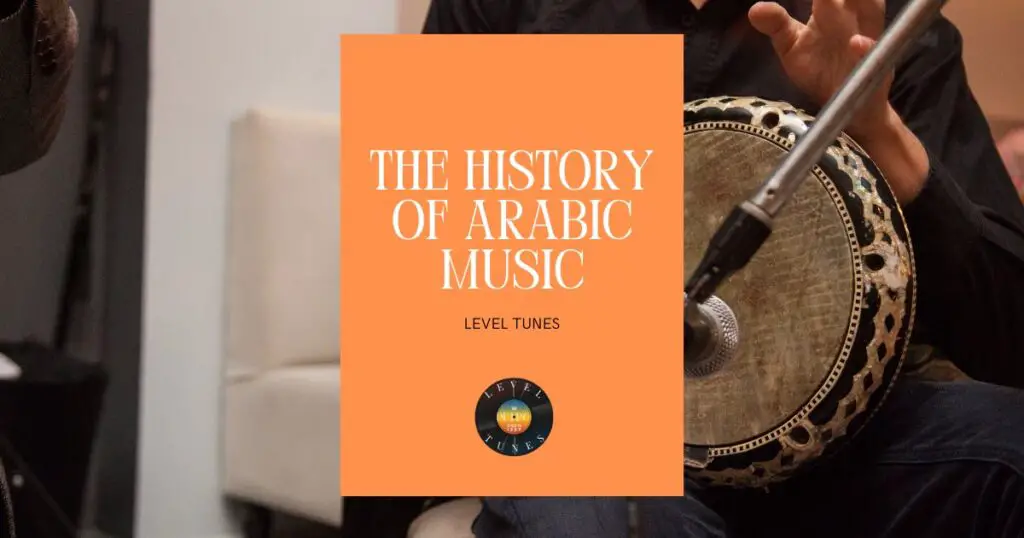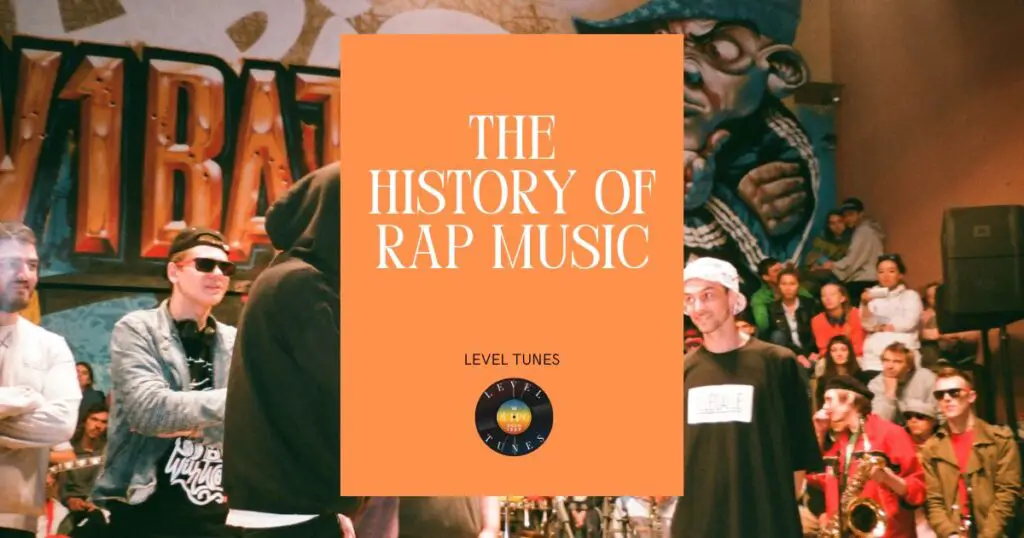Dive into the enchanting world of ancient music, where prehistoric melodies and early human creativity intertwine to form a rich tapestry of sound.
This magical journey through time explores how our ancestors gave birth to music, defying boundaries to express their emotions and narrate tales that have captivated generations.
From Mesopotamian hymns to melodious strings of ancient Greece, delve with us into the origins and evolution of this timeless art form that has shaped our history beyond measure.
Key Takeaways
- Ancient music was characterized by monophony, improvisation, and a strong emphasis on text in compositions.
- Music played a vital role in shaping cultures and traditions across ancient civilizations like Mesopotamia, Greece and Rome, and China.
- Different types of musical instruments were used for different purposes throughout history, including percussion instruments, string instruments, wind instruments, keyboard instruments,
plucked string instruments
and electronic devices.
- Traditional songs and ballads passed down from generation to generation often contained stories that reflected the values and beliefs of society at large.
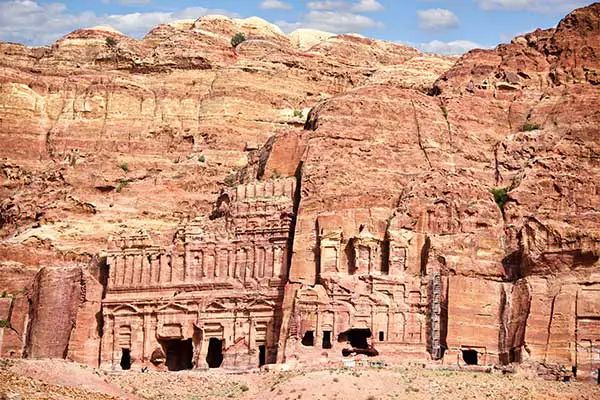
Defining Ancient Music
Ancient music refers to the musical creations of prehistoric and early human history, characterized by unique styles and cultural significance.
Characteristics And Styles Of Ancient Music
Delving into the characteristics and styles of ancient music, it’s fascinating to note that across various cultures, this musical era was predominantly marked by monophony, improvisation, and a strong emphasis on text in compositions.
This means that unlike polyphony found in later periods such as Medieval music, ancient melodies often consisted of a single melodic line without any harmony or counterpoint.
One extraordinary example is the ancient Chinese music which primarily featured monophonic melodies based on a five-tone scale akin to the Western Pentatonic system. This distinct style not only allowed for rich expressive capabilities but also played an essential role in traditional rituals and celebrations.
Another remarkable aspect of ancient music is its versatility since musicians relied heavily on improvisation due to lack of standardised musical notation systems back then.
As we explore these intricate aspects further, what stands out most about ancient music could be how it underscores the universality of human emotions through sound while reflecting deeply rooted cultural heritage at every turn.
The Cultural Significance Of Music In Ancient Times
Delving into the cultural significance of music in ancient times is a fascinating journey, revealing how deeply it was ingrained within various aspects of life. From religious rituals to social gatherings and storytelling to commemorations, music has always held tremendous importance across ancient civilizations.
For example, in ancient Greece, Pythagoras discovered the mathematical relations behind musical intervals – highlighting the cosmic harmony between mathematics and music.
This revolutionary concept had an impact on both Greek philosophy as well as the development of Western classical music.
Traditional instruments like lyres and flutes were used extensively in these practices, with each culture developing its unique soundscape reflecting their identity and cultural heritage.
As we explore this immensely rich legacy left behind by ancient musicians whose works resonate till today’s contemporary genres, one cannot help but recognise that they have laid down a strong foundation for our modern understanding of artistry in soundscapes and provided valuable insights into human creativity over time – making them truly timeless masterpieces worth cherishing forever!

Timeline Of Ancient Music
Ancient music timelines vary depending on the region, with Mesopotamia, Greece and Rome, and China being notable for their unique musical systems; discover more about the evolution of music during prehistoric times in our upcoming sections.
Music In Mesopotamia
Delving into the rich history of ancient music, Mesopotamia often stands out as a fascinating and influential region. As an essential aspect of both religious and secular contexts, music played significant roles across various periods in this cradle of civilisation.
What’s intriguing about Music in Mesopotamia is the sheer variety of musical instruments used by its people. Archaeological discoveries have provided glimpses into their vibrant world filled with lyres, drums, rattles, pipes, triangles, stringed instruments and more! Iconographic finds further illuminate our understanding by showcasing representations of musicians playing these diverse instruments.
Amongst them all lies a true gem – the Mesopotamian lyre – one of only 15 instruments deemed significant enough to represent the illustrious history of world music.
Music In Greece And Rome
Ancient Greece is often referred to as the birthplace of Western music, with a rich musical tradition that dates back to ancient times. In fact, Greek music was so important to their culture that it played a significant role in many aspects of daily life such as religious festivals and theatrical performances.
The Greeks had various kinds of instruments in their musical arsenal including stringed, wind, and percussion instruments such as the lyre, aulos (usually double), and syrinx.
Similarly, Ancient Rome also had an important musical tradition integral to its culture. Roman musicians were highly regarded during this period even though they drew much inspiration from the Greeks for their work.
Music reflected every aspect of Roman society – political events had designated songs while specific genres would accompany traditional weddings or funerals.
Music In China
Chinese music has a rich history that dates back thousands of years. Evidence of bone flutes and clay instruments from around 8,000 years ago shows that music was already an important part of Chinese culture.
Traditional Chinese music is often played on solo instruments or in small ensembles, with harmony playing a significant role. In ancient China, it was believed that music played an essential role in maintaining the harmony and longevity of the state.
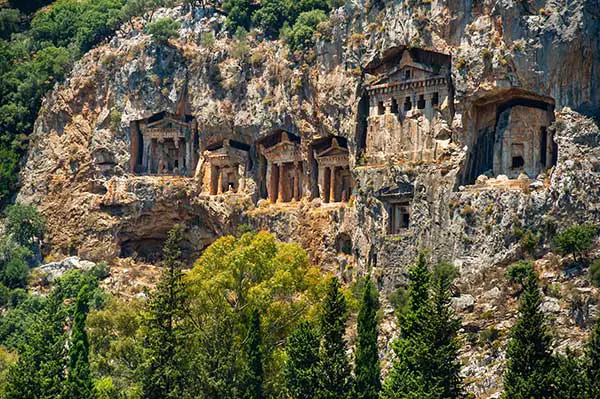
Musical Instruments In Ancient Music
Ancient music was performed using a variety of musical instruments, including tuned chimes, string and wind instruments.
Types Of Musical Instruments Used In Ancient Times
As a music lover, you might be interested to know about the different types of musical instruments that were used in ancient times. Here are some of them:
- Percussion instruments: These are instruments that produce sound when struck or hit, such as drums, cymbals, and tambourines.
- String instruments: These are instruments that produce sound by vibrating strings, such as the lyre, harp, and lute.
- Wind instruments: These are instruments that produce sound by blowing air through them, such as flutes, pipes, and horns.
- Keyboard instruments: These are instruments that produce sound by pressing keys or buttons, such as the organ and piano.
- Plucked string instruments: These are instruments that produce sound by plucking strings with the fingers or a pick, such as the guitar and mandolin.
- Electronic instruments: While not ancient per se, electronic music has ancient roots in the use of electromechanical devices like the telharmonium.
Each type of instrument was used for different purposes throughout history and across various cultures worldwide. This diversity highlights how important music was in shaping human culture and history over time.
The Role Of Music In Ancient Societies And Cultures
Music played a vital role in ancient societies and cultures, serving as a means of communication, celebration, and commemoration. It was an essential part of daily life in many civilizations, from Mesopotamia to Greece and Rome, used to express emotions or convey messages that were difficult to articulate through words alone.
Additionally, music was a way for ancient people to connect with their cultural heritage. Traditional songs and ballads passed down from generation to generation often contained stories that reflected the values and beliefs of society at large.
Furthermore, archaeological digs have unearthed numerous musical instruments used by early civilizations like lyres in Egypt or harps in Mesopotamia revealing how important the art form had been over time around the world.
[Keywords:]- Musical Instruments in Ancient Music – Traditional music- Rituals- Cultural heritage- Ethnic instruments-Archaeology-Historical musicology-Folklore-Ancient civilizations-Musical anthropology
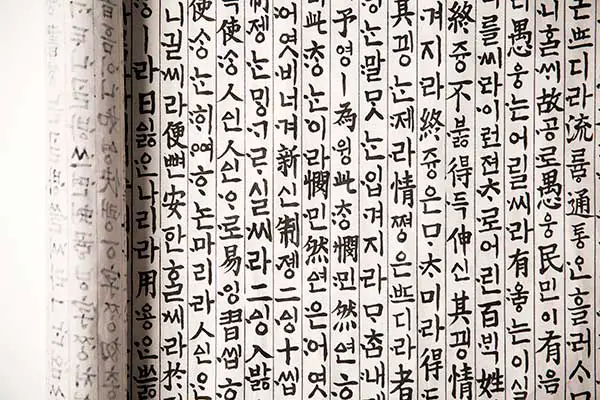
Notable Composers And Musicians Of Ancient Music
Many ancient cultures had notable composers and musicians, such as Mesopotamia’s Enheduanna, Greece’s Pythagoras and Orpheus, Rome’s Terence and Nero, and China’s Confucius and Shi Kuang.
The Contributions Of Famous Ancient Musicians And Composers To Music History
As a music lover, it’s fascinating to explore the rich history of ancient music and its lasting impact on modern compositions. Here are some notable contributions made by famous ancient musicians and composers that have influenced music history:
- Pythagoras – Known for his mathematical formula for musical harmony, Pythagoras’s work became foundational in Western music theory.
- Johann Sebastian Bach – Considered one of the greatest composers of all time, Bach revolutionized Baroque music with his intricate counterpoint and use of the fugue.
- Hildegard von Bingen – A German Benedictine abbess, Hildegard composed over seventy plainsongs and is known for her use of unconventional intervals and harmonic progressions.
- Guillaume de Machaut – A medieval French composer and poet, Machaut’s works range from secular ballades to religious chansons, making him one of the most versatile composers of his time.
- Wolfgang Amadeus Mozart – A prolific composer with over 600 works to his name, Mozart was a child prodigy who quickly rose to fame during the Classical period for his grand operas, symphonies, and concertos.
- Claudio Monteverdi – Credited with developing the first operatic style in the late Renaissance period, Monteverdi is renowned for his use of expressive vocal melodies and rich harmonies.
- Johann Strauss II – The “Waltz King” of Vienna popularized dance music in the 19th century with his lively polkas and waltzes that are still played at ballroom dances today.
- Ludwig van Beethoven – A trailblazer in Romantic-era music, Beethoven’s works are marked by their emotional intensity, complex harmonies, and dynamic contrasts.
- Frédéric Chopin – One of the most influential pianists in history, Chopin’s graceful nocturnes and virtuosic études continue to inspire pianists and composers alike.
- Igor Stravinsky – A Russian composer, Stravinsky’s bold experiments with rhythm and orchestration shook the music world with landmark works like The Rite of Spring, which caused a scandal at its premiere in 1913.
The contributions of these famous ancient musicians and composers have shaped the course of music history and continue to influence modern compositions.
The Impact Of Their Works On Modern Music
As music lovers, we owe a lot to the notable composers and musicians of ancient times. Their works have had a significant influence on modern music, giving birth to various genres that are still prevalent today.
One of the most important legacies of ancient music is its role in shaping our understanding of emotions conveyed through sound. This includes concepts such as melody progression and harmony that remain essential components of contemporary music.
The rediscovery of Bach’s work in the early 19th century led to what was known as the Bach revival movement that sought his ‘lost’ pieces and brought them back into circulation.
More than just resurfacing an important composer’s lost works though, this movement also sparked a renewed interest in traditional forms like cantata and chorale compositions that inspired many later composers who continue their tradition even today with vocal groups like The Sixteen being devoted solely or primarily toward performing medieval and Renaissance choral repertoire.
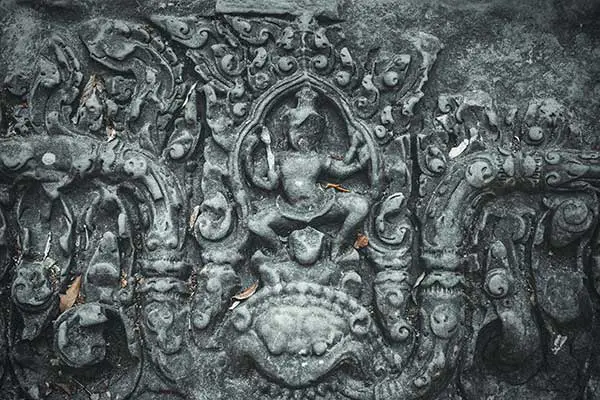
Legacy And Preservation Of Ancient Music
Ancient music continues to inspire modern composers, and efforts have been made to preserve and rediscover ancient musical traditions through projects such as the Music Archive Project and the Akademia project.
Discover fascinating facts about the history of ancient music – from prehistoric times to classical Greek, Roman, Chinese and more!
The Influence Of Ancient Music On Modern Music
As a music lover, you would be interested to learn about the influence of ancient music on modern music. Ancient music has had a significant and distinctive impact on contemporary styles as it is often considered the foundation for traditional and classical music.
For instance, many scholars believe that Western classical music traces its roots back to ancient Greece, where musicians used modes like Dorian or Phrygian to create melodies that still inspire contemporary composers.
Similarly, Middle Eastern rhythms have influenced jazz and rock performers who experiment with odd time signatures or polyrhythms.
Efforts to preserve musical heritage and rediscover ancient traditions also contribute to enriching modern compositions. Ethnomusicologists study indigenous practices around the world and record endangered songs or instruments that may disappear without intervention.
Overall, understanding the legacy of ancient music provides valuable insights into our shared cultural heritage and artistic expression today.
Efforts To Preserve And Rediscover Ancient Musical Traditions
As a music lover, it’s fascinating to think about the ancient musical traditions that have been lost to time. Fortunately, there are many efforts underway to preserve and rediscover this music. Here are some of the ways people are working to keep these ancient tunes alive:
- Research: Musicologists and historians are digging into archives and ancient texts to find references to music and musical instruments from different periods.
- Reconstruction: Musicians are working on reconstructing pieces of music from surviving fragments or adapting similar melodies found in later works.
- Collaboration: Musicians from different cultures are collaborating on projects exploring the history and influence of ancient music.
- Virtual Reconstruction: Using computer models, scientists can recreate ancient instruments, giving us a glimpse into how they may have sounded.
- Performance: Musicians today perform ancient musical pieces at festivals, concerts, and other events around the globe.
These efforts show us that while the past is gone, we can still learn so much from it by preserving its cultural heritage through art forms like music. By supporting these initiatives, we ensure that future generations will have access to the richness of our musical traditions – both old and new.
Conclusion: Reflection On The Significance Of Ancient Music In Our Understanding Of Human History.
As a music lover, it’s fascinating to reflect on the significance of ancient music in our understanding of human history. Music has been a crucial part of human culture and society since ancient times, and studying its evolution can provide valuable insights into our past.
Through archeomusicology and ethnomusicology, scholars have been able to discover and preserve ancient musical compositions through various forms such as musical notation or recordings left behind by past civilizations.
This allows us to experience what this historic genre sounded like many centuries ago.
FAQs:
What is ancient music and when did it originate?
Ancient music refers to the types of musical compositions and instruments played during various periods in history, particularly before the Middle Ages. The earliest known forms of music date back to around 1000 BCE in Ancient Greece, but there may be even older examples dating as far back as prehistoric times.
How did ancient people use music in their lives?
Music played an important role in many aspects of ancient societies, including religious ceremonies, cultural celebrations and rites of passage such as weddings and funerals. It was also used for entertainment purposes such as dancing or listening to live performances.
What were some popular instruments used in ancient times?
Popular ancient musical instruments included harps, lyres, flutes, trumpets and drums amongst several others depending on the specific culture or region. These instruments were often made from natural materials like animal hides or wood that could be easily sourced locally.
How has ancient music influenced modern day compositions?
Despite being separated by centuries of time and evolving cultures & technologies – studies have shown early Greek techniques are still influential across all genres today from modern operas Broadway shows score soundtracks alike – including classical masterworks remarkable movements symphonies which have remained relevant due their lasting impact throughout history
Thanks for reading.
TBone

